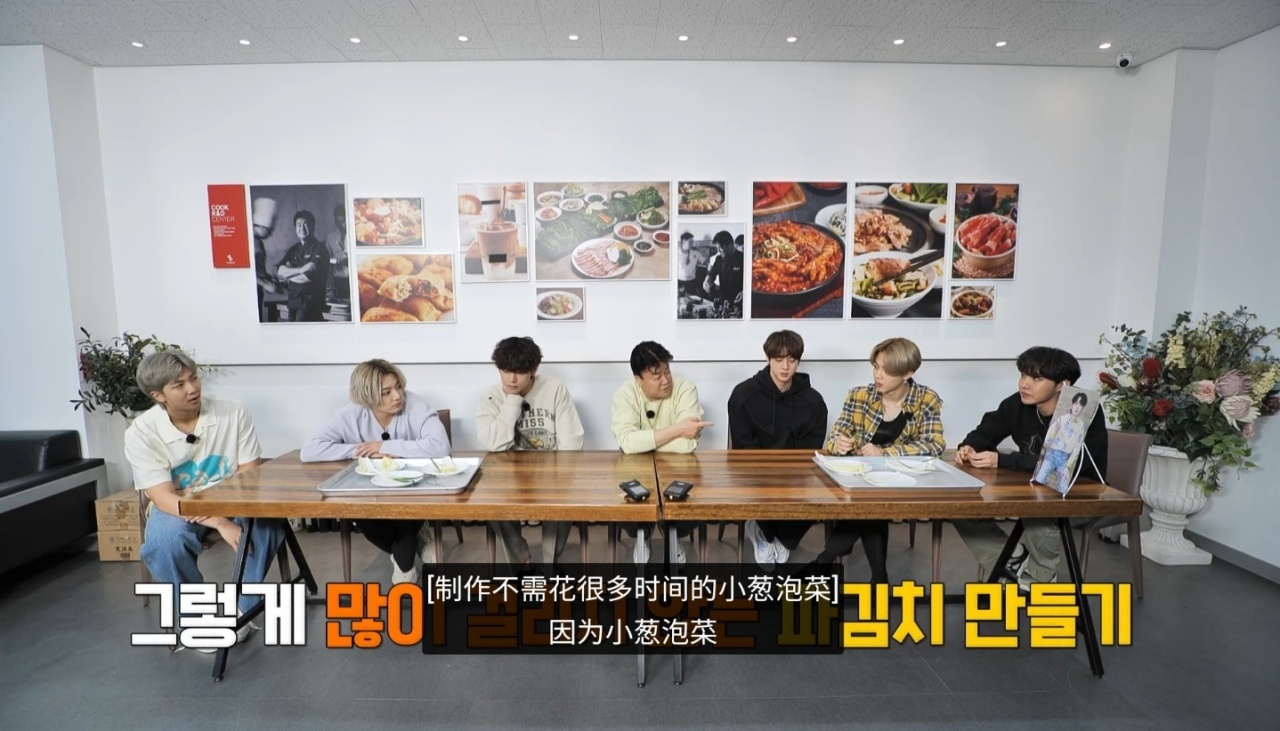 |
A screenshot from Naver’s V Live shows the June 15 episode of BTS’ variety program “Run BTS!” (Naver V Live) |
Naver’s V Live is being criticized for translating kimchi as “pao cai” -- a pickled vegetable dish eaten in China -- in the June 15 episode of BTS’ variety program “Run BTS!”
On the show, the BTS members are divided into two teams and make two different types of kimchi with restaurateur Paik Jong-won. Each time kimchi is mentioned in the video, the Chinese subtitles read “pao cai.”
With Chinese media having claimed kimchi originated from pao cai, the translation has caused a furor among South Korean netizens.
“It made it look like BTS is promoting pao cai,” a netizen commented online.
In November last year, the Global Times, the Chinese Communist Party’s mouthpiece, falsely claimed the country had received an international industrial standard certification for making kimchi, calling it pao cai. At the time, Korea’s Ministry of Agriculture, Food and Rural Affairs refuted the claim, saying the certification from the International Organization for Standardization clearly stated that it did not apply to kimchi.
Naver explained that the translation was in accordance with the Ministry of Culture, Sports and Tourism’s translation guidelines.
“We are currently waiting for the government’s reply. We will change the problematic subtitles once we receive new guidelines,” a Naver spokesperson told The Korea Herald on Monday.
The Culture Ministry guidelines were established in July last year.
Food names that are already widely used in China are accepted, the guidelines read, with “pao cai tang” given as an acceptable translation for kimchi jjigae, a stew made with kimchi.
After a cultural feud broke out over the traditional Korean dish last year, the Culture Ministry in January said it would change the guidelines. But it has not yet done so.
“We are currently in discussions with different bodies to make the change. It is complicated since we have to also consider whether it can hurt Korean exporters who are trying to export kimchi products,” a Culture Ministry official said.
He added that the guidelines are only recommendations and private companies don’t have to follow them.
By Song Seung-hyun (
ssh@heraldcorp.com)





![[Exclusive] Hyundai Mobis eyes closer ties with BYD](http://res.heraldm.com/phpwas/restmb_idxmake.php?idx=644&simg=/content/image/2024/11/25/20241125050044_0.jpg)
![[Herald Review] 'Gangnam B-Side' combines social realism with masterful suspense, performance](http://res.heraldm.com/phpwas/restmb_idxmake.php?idx=644&simg=/content/image/2024/11/25/20241125050072_0.jpg)

